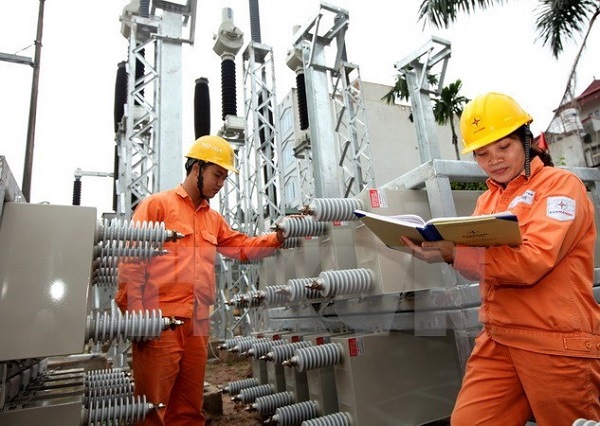EVN reports massive losses, debts in first-half 2016
Despite a revenue increase, Vietnam Electricity still suffered massive losses and incurred major debts in the first six months of this year, with the state-run power monopoly blaming changes in foreign exchange.

Illustrative photo
EVN’s first-half revenue rose 17 percent year on year to nearly VND131 trillion (US$5.85 billion), but the electricity behemoth still incurred close to VND930 billion ($41.52 million) in losses, according to the company’s six-month financial report.
Over the same period, the company’s debts surged to VND475 trillion ($21.21 billion), including VND395 trillion ($17.63 billion) worth of financial loans. EVN has earmarked a total of VND6.9 trillion ($308.04 million) for repaying its debt interest in the Jan-Jun period, according to the report.
In the first half of last year, EVN reported an accumulated profit of VND1.27 trillion ($56.7 million).
“A strengthening Japanese yen was behind the company’s losses,” EVN deputy general director Dinh Quang Tri told Tuoi Tre (Youth) newspaper on Sunday.
Many of EVN’s subsidiaries have had to take Japan’s loans in yen to fund their power plant projects, and these debts grew bigger as the Japanese currency gained value.
For instance, the EVN-run power generating corporation EVNGENCO 1 has borrowed VND6.73 trillion ($300.45 million) in yen currency loans, only to see the Japanese currency appreciate by 17 percent from the beginning of this year to the end of March.
In the wake of the hefty losses, EVN has suggested increasing power prices.
Deputy Minister of Industry and Trade Hoang Quoc Vuong also said part of EVN’s losses came from the fact that the company had to buy petroleum to run the oil-fueled power plant to maintain electricity supply for southern Vietnam during the dry season.
“If EVN continues incurring losses, it is inevitable that we may one day have to pressure the government to allow us to increase retail power prices,” Vuong said.
The power company is under the direct management of the Ministry of Industry and Trade, and any power price hike must be approved by the government.
EVN tends to ask to be allowed to increase power prices whenever it suffers losses, something local experts find unacceptable.
Other experts also suggested EVN should find ways to reduce the negative impacts of the foreign exchange rate, instead of simply asking to raise power prices to make up for their losses./.
( VNF/tuoitrenews )
